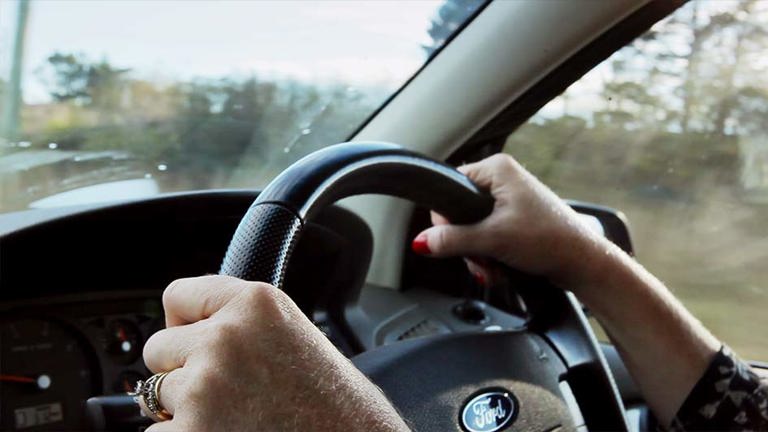Whether you’re heading off on a camping trip or hauling goods in a trailer, there’s no doubt that towing a trailer is a very different experience to driving a vehicle. To make sure you get from A to B safely with your trailer in tow, it’s important to know how to prepare your vehicle and trailer for towing as well as what to do and what not to do behind the wheel.
Trailers include everything from camper trailers and caravans to boat trailers, horse floats and special-purpose trailers. So to help you make it to your destination without a hitch, we’ve put together our top tips for towing.
How to prepare for towing
Before you even hit the road with your trailer strapped on, there’s a few things you should know:
- First things first, as the driver you’re legally responsible for being safe. It’s up to you to ensure the towing vehicle, trailer and tow couplings meet the minimum standards and loaded mass limits.
- Make sure your towing vehicle and trailer are both roadworthy, registered and insured. If you’re on the hunt for a new insurance policy, check out Youi’s range of car and trailer coverage options.
- Ensure your vehicle is suitable for towing. If it’s not up to scratch, you’ll need to find a vehicle that’s capable of towing the load. Not sure whether your set of wheels is up for the job? Refer to the owner's manual for detailed information on maximum weight and towing capacity.
- When assessing the load of the vehicle and trailer it’s also important to consider the final weight. This includes vehicle passengers and the final load of the trailer (i.e. inclusive of camping gear for caravan, fishing gear for a boat or horses and tack for a float).
- Position the load as close to axle/s as possible.
- Be aware that towing affects the performance of your vehicle. You’ll have slower acceleration and braking, reduced control and manoeuvrability as well as increased fuel consumption.
- Run through your pre-tow checks before hitting the road. This includes checking things like the couplings are connected securely, the safety chains and break-away wire are fixed, the trailer is plugged in and brake lights and indicators are working and easily visible.
- Make sure the trailer’s number plate can be clearly identified and isn’t obscured by accessories like bike racks.
- Lastly, if you’re new to towing there’s plenty of towing courses that you can take to gain some of the experience you will need before you set out with your trailer.
What to do when towing
So, your trailer’s all hitched up, you’ve done your safety checks and you're ready to hit the road. Here’s a few things to keep in mind when you’ve got a trailer in tow:
- Know the dimensions of your vehicle and trailer. You’re going to have more width and length than you usually would so allow for this when driving, especially when entering traffic or overtaking.
- Allow for a longer acceleration period as your car will not accelerate as quickly as normal when you are towing something. This is especially important when entering traffic or overtaking.
- Account for greater stopping distance. Because of the weight of your vehicle and trailer combined, it will take longer to brake than usual.
- Take corners wide to allow for the trailer's tendency to cut in.
- Use lower gears when travelling downhill to increase control and reduce strain on your vehicle's brakes.
- Keep your eyes on the road and look ahead for any potential obstructions. You’ll want to give yourself as much brake time as possible if you can spot something up ahead.
- Reversing is more difficult when you’re towing something and can take a bit of practice, so be sure to take your time when reversing.
What to avoid when towing
Now that you know what you should be doing when towing a trailer, we’ve also put together a few points that you should avoid when you’ve got an extra load:
- Avoid overloading the trailer. Don’t exceed the aggregate trailer mass (ATM), which is the maximum allowable weight of the loaded trailer, or the tyre or coupling capacity.
- Don’t be tempted to reverse the trailer too quickly. Make sure you scan the area first for obstructions and take it slow. Better yet, have someone positioned outside your vehicle to give direction as you back it up.
- If your trailer starts to sway while you’re driving, don’t brake or try to steer out of the sway. Instead, if it’s safe, hold steady and accelerate slightly until the sway stops.
- Avoid any sudden movements like braking, accelerating and steering. Try to keep your driving as smooth as possible.
- Don’t slow down if you’re being overtaken. The air turbulence from the overtaking vehicle can cause your trailer to sway or snake, so it’s best to maintain speed to avoid this from happening.
When it comes to towing, it’s important to be prepared and know what you’re doing behind the wheel so you have a safe and pleasant driving experience. Explore Youi’s range of car insurance and trailer insurance to keep yourself, your vehicle and your trailer protected on the road.
Disclaimer: The information in this article is general advice only and may not apply to all towing scenarios. Professional assistance or training should be sought prior to applying any information in this article.



